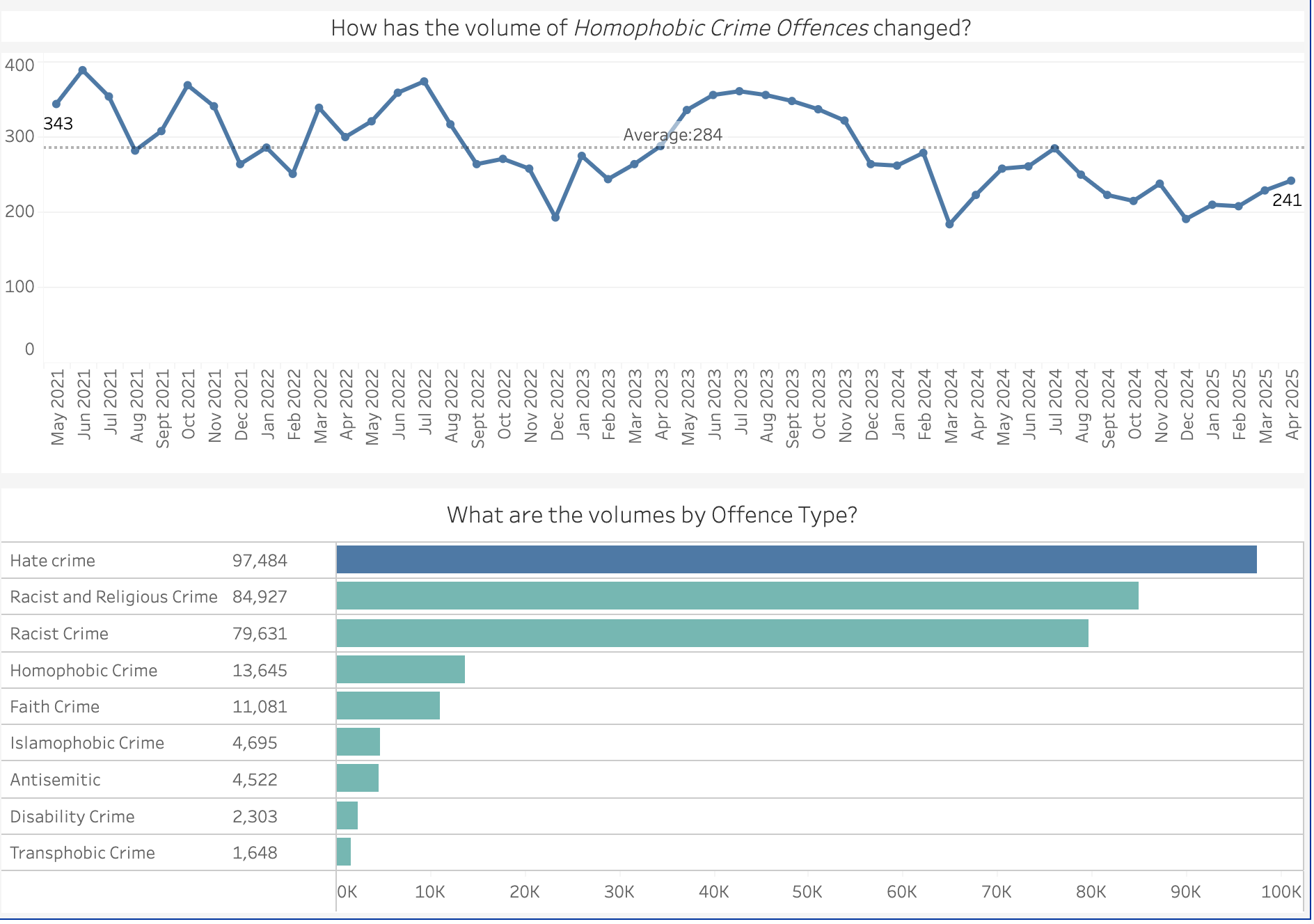The closure of LGBTQIA+ venues in London
Lucy Younger

More than half of London’s LGBTQIA+ venues have closed since 2006, according to Greater London Authority data.
The data shows that 19 years ago, there were 125 venues in London, but in 2023, there were just 50.
That number is thought to have decreased over the last 2 years with closures from bars like G-A-Y Late, West Five and The Glory closing in early January 2025.
Whilst these big, cult cabaret bars are closing their doors across the city, smaller venues are opening, and creators are hosting queer nights in different venues that may not be organically known as LGBTQIA+ spaces but are becoming more inclusive to the community.
Creators of the Lesbian Supper Club podcast, Freya Evans and Scarlett Plott, now host lesbian wine nights where queer women, trans inclusive, can gather.
Credit: Unsplashed Ole Kloth
Credit: Unsplashed Ole Kloth
Interview with Podcast Host Freya Evans


The Lesbian Supper Club Podcast was created as a space for queer women have a platform to connect and listen to two Lesbian women be open and honest about their experiences with no filter. Co-host Scarlett Plott said: “The feedback that we’ve had since starting the podcast is that there is a real lack of finding community and finding friends within our community.
“Obviously, there are multiple reasons why these LGBTQIA+ venues are shutting down, but I think a huge reason is the digital age in which we live, as well, which isn’t helpful, along with rising rent prices in London, which have a knock-on effect as well.”
London Assembly released a report stating that rising rent prices and the gentrification London were a significant factor for the closure of queer venues, leaving spaces empty and threatening the community.
Plott said: “I think the difference between it affecting LGBTQIA+ communities more than it does heterosexual clubs is because straight people comparatively aren’t struggling as much to find community.”
Initially, community can be found in schools, sports clubs, and other spaces, whereas LGBTQIA+ clubs were created as a safe and accepting space for people to meet.
Co-host Freya said: “It has impacted me in the sense of the direction of the way everything is heading that is a terrible feeling as we are going backwards, but the direct closure has not impacted me as I never felt like those places were designed for me.
“I never felt like they resonated with me, a lot of them are gay male-centric, and I have been turned away from so many of them.
“I want to create more queer spaces in London and make people feel confident within themselves in London, because they should as it’s a beautiful city and we have amazing people here.”
London still holds its annual Pride festival every year, which has a hub in the centre, and has seven stages across the city.
However, there is concern with a recent bill put through parliament whereby under the 2010 Equality Act the legal definition of a woman is limited to those assigned female at birth and this caused mass protest across London.
The Office for National Statistics released a report with Knight Frank, citing that more people are now leaving London than they are moving to the city.
Within this data, it showed that the most popular cities that people moved to within England were Birmingham, Bristol and Manchester.
During 2023, it is estimated that 860,000 people left London to settle somewhere else in the UK, all for differing reasons; however, the LGBTQ+ community has started to move from London to other areas of the UK after the closure of spaces in Soho.
Imogen Spellen, a 23-year-old LGBTQ+ member, who was once based in London, said: “When I first came to London, there was a great LGBTQ+ scene, especially in Soho, it was inclusive and I felt like I always had somewhere to go.”
However, over the years, the secondary school teacher said you could see the decline in spaces.
She continued: “Towards the end of my degree, there were a lot fewer spaces and the community felt separated.
"I didn’t feel included anymore, and there were a lot more hate crimes in Soho.”
Hate crime is defined by a crime against someone based on a part of their identity and Imogen felt this was happening in Soho.

"I don't feel welcome in Soho anymore"
Emily Snell


Interview with Crushed Brighton owner Emily Snell

The 22-year-old further elaborated on hate crime within the city, which has been backed up by data released by the Greater London Authority, which shows hate crime rising across the city from 2021 to 2025.
Spellen said: “I used to feel comfortable holding hands in public with my partner in London, but by the time I left the city I would never hold hands in public.
"We would just walk side by side and show no sort of affection, I’ve seen far too many queer get assaulted in public just for being in a same sex relationship.”
Imogen moved out of London to Birmingham, where she now lives and works as a secondary school teacher, whilst she wanted to remain in London, Birmingham’s gay village and other queer spaces attracted her to the city.
She said: “It was with either Birmingham or Manchester, I know a lot of queer people moving from the south up north it seems a lot more inclusive and it’s not just the nightlife.
“It’s more accepting, there are queer poetry clubs and non-alcoholic queer activities for queer people as well.”
Emily Snell, a 24-year-old from London, also left the city to pursue a new life in Brighton, where she and her now girlfriend opened a lesbian night.
She said she felt London was no longer the capital of the LGBTQIA+ community.
The Brighton resident said: “Coming out in London felt really scary, whereas in Brighton I’ve never felt the need to lie, I feel comfortable and accepted down here.”
The 24-year-old further went on to say that Brighton had a nicer nightlife for the LGBTQIA+ community, and, like Spellen, she noted that there was a stronger sense of community.
The events host said: “I felt the impact of LGBTQ+ spaces in Soho closing, particularly now when I go home, I feel as though there isn’t much of a nightlife for gay people in London.
“I’d always prefer to go to Brighton or Manchester, but I never felt that represented in London anyway, that’s why we started our own Lesbian, trans inclusive night in Brighton.”
Credit: @Leachyy
Credit: @Leachyy
Emily and a group of her friends host an event once a month called Crushed Brighton, a trans-inclusive lesbian club night. They felt that, although the LGBTQIA+ community in Brighton is vibrant, lesbians still lack a strong community.
London is seeing a rising trend of queer people leaving the city to move to cities with more community, and queer venues whilst also witnessing the rise in grassroots and independent venues opening up.
Credit: Imogen Spellen
Credit: Imogen Spellen




